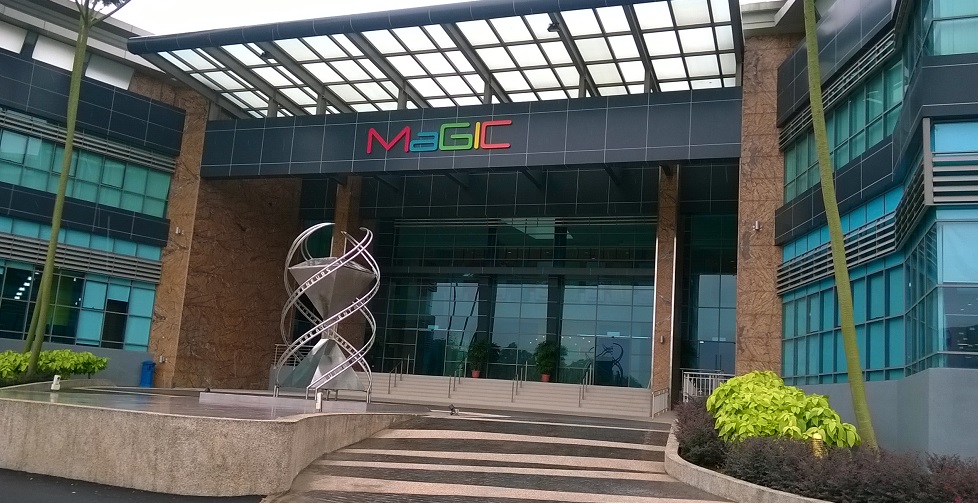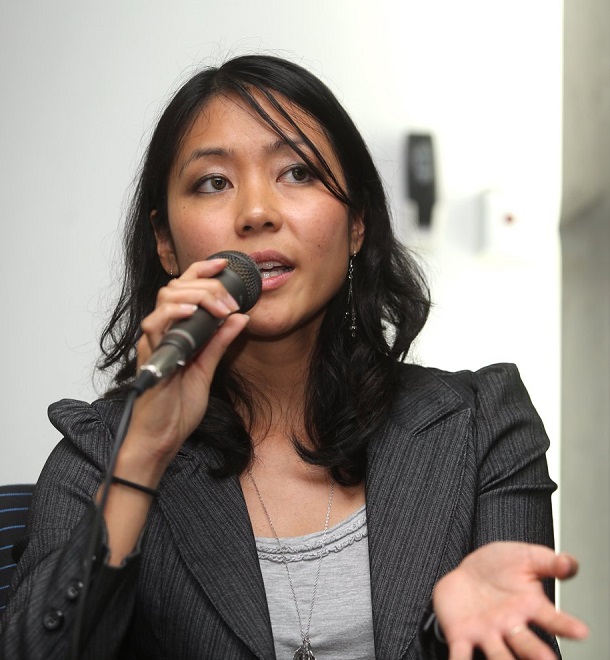500 Startups’ Khailee Ng expects a ‘feeding frenzy’ in Asean
By Karamjit Singh July 16, 2015
- MaGIC support of Distro Dojo to spark a ‘virtuous cycle’
- Ng says programme is different from one proposed to IDA last year

IT is in the nature of Silicon Valley tech firms and investors to make inflated claims, so when 500 Startups announced that it will be launching its ‘Distro Dojo’ accelerator programme in Asia and was targeting to invest in 100 Asean startups over three years, it was natural to ask if its target was too ambitious.
Especially since the startups must have already raised at least US$150,000 to qualify for consideration in the programme, which is being rolled out in partnership with the Malaysian Global Innovation and Creativity Centre (MaGIC).
Posed this question, 500 Startups managing partner Khailee Ng answers by way of sharing its experience in India.
He says the seed fund and accelerator was warned that the Indian market was not ready in 2011. But 500 Startups went ahead and cut cheques for 50 startups over the past four years. Today, every venture fund wants to get in on the action in India, and valuations are shooting up.
 “It is a feeding frenzy now,” observes Ng (pic) of the strong investor interest in the Indian startup ecosystem today.
“It is a feeding frenzy now,” observes Ng (pic) of the strong investor interest in the Indian startup ecosystem today.
He suggests that this feeding frenzy is a consequence of the exponential growth nature of startups.
Of interest to Internet entrepreneurs in this region is his belief of a similar pattern emerging in South-East Asia, especially with the influx of funds from Japan, Singapore, Malaysia, the United States, as well as family and corporate funds.
“I am already seeing the same exponential trend here,” he claims, adding that the 100-startup target is actually quite conservative and allows him to be more choosy.
“On my own, I have already made 50 investments over the past 12 months, and I want to do a lot more – as do other VCs (venture capitalists) in South-East Asia,” he says, adding that there are already “hundreds” of startups in the region that have received at least US$150,000 over the past few years.
While Ng’s investments are currently made all over Asean (the Association of South-East Nations bloc) and through 500 Startups’ US$15-million 500 Durians fund, its Distro Dojo accelerator programme will specifically invest in Asean-focused startups that are in their growth stage.
Startups which accept the offer to be part of Distro Dojo are required to give up a small stake based on their most recent valuation round. They receive US$50,000 worth of funding from 500 Startups – US$25,000 will be pumped back into the programme fee, while US$25,000 will be available for product marketing.
The idea is that startup founders and their teams will benefit from hands-on work covering areas such as user acquisition, conversion optimisation, content marketing, user experience, and emerging channels.
Rejected by Singapore?
Digital News Asia (DNA) has learnt that 500 Startups had made a somewhat similar proposal to the Infocomm Development Authority of Singapore (IDA) around July last year, but that proposal was turned down.
The proposal required the IDA to invest a total of US$20 million into “startups sourced and selected by 500 Startups and supported by” the programme, according to a document DNA had obtained. That programme was named 500 Cerebro.
‘Cerebro’ was incidentally the name of the pilot programme for Distro Dojo that was conducted with four startups from August to October last year, according to an official statement by 500 Startups and MaGIC.
Ng denies that Distro Dojo is a version of the IDA proposal. “That is completely inaccurate,” he says.
“We have been in talks with IDA on certain programmes previously but could not come to an agreement. We still continue to explore certain things with them and other governments all the time,” he adds.
According to MaGIC chief executive officer Cheryl Yeoh, “MaGIC is not investing. This is a completely independent 500 Startups programme.”
A virtuous cycle in KL
An anchor part of the Distro Dojo accelerator is that it will bring all the startups to MaGIC's facilities in Cyberjaya for a six-week face-to-face intensive session. The first and final two weeks will be conducted online.
According to Ng, while there was no shortage of governments that wanted to support the programme and even invest financially to have it in their country, “there must be substance in the country we partner with,” he says.
Not only does Malaysia have that, but in MaGIC, Ng says 500 Startups has a public agency partner that “works fast” and “gets things done.”
 For MaGIC and Yeoh (pic), the Asean element of Distro Dojo’s accelerator made it an easy programme to support.
For MaGIC and Yeoh (pic), the Asean element of Distro Dojo’s accelerator made it an easy programme to support.
“Both Distro Dojo and our MAP (MaGIC Accelerator Programme) have an Asean focus, and with the two groups of companies in each programme at different levels of growth and maturity, they would benefit from interacting with each other,” she says.
While MAP starts at the end of July, Distro Dojo kicks off in August, with the startups picked to spend six weeks at the MaGIC campus in Cyberjaya in September.
Asked about the cost of hosting Distro Dojo and its startups over the next three years of the programme, Yeoh says “it is part of the admin costs associated with the programme, such as accommodation and F&B (food and beverage) for the teams and mentors.”
She adds that MaGIC is not paying for the mentors’ fees or their travel costs into Malaysia.
Ng says that the mentor fees and travel costs are actually covered under the US$25,000 programme fee that each startup pays.
In a follow-up email from DNA inquiring about the total cost to MaGIC, a spokesperson says it is unable to talk about the financial terms of the three-year partnership.
Meanwhile, both Yeoh and Ng are excited about the time when the two groups – from Distro Dojo and MAP – will be living and learning under the same roof at MaGIC, with Ng describing as “absolutely invaluable” the knowledge transfer that will happen when you get Malaysian companies mixing with regional ones, and with global mentors thrown into the mix as well.
“It is the start of a very virtuous cycle and I am really glad that MaGIC has moved so quickly to support this and have this here in Kuala Lumpur versus anywhere else,” he adds.
Related Stories:
500 Startups’ ‘Distro Dojo’ to kick off in Malaysia in Aug
MaGIC launches its Asean accelerator programme
CEO Cheryl Yeoh lays out MaGIC’s ingredients
For more technology news and the latest updates, follow us on Twitter, LinkedIn or Like us on Facebook.


